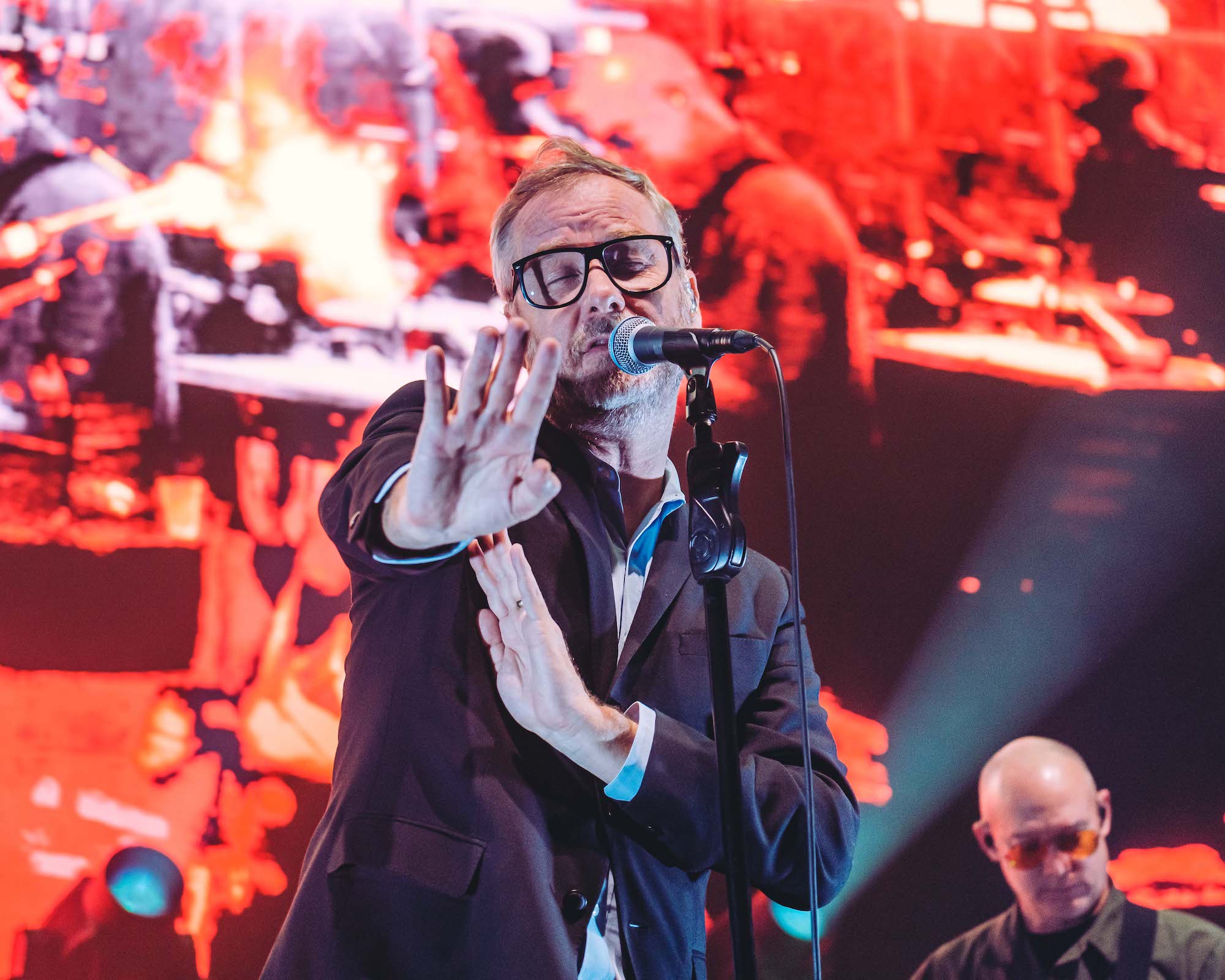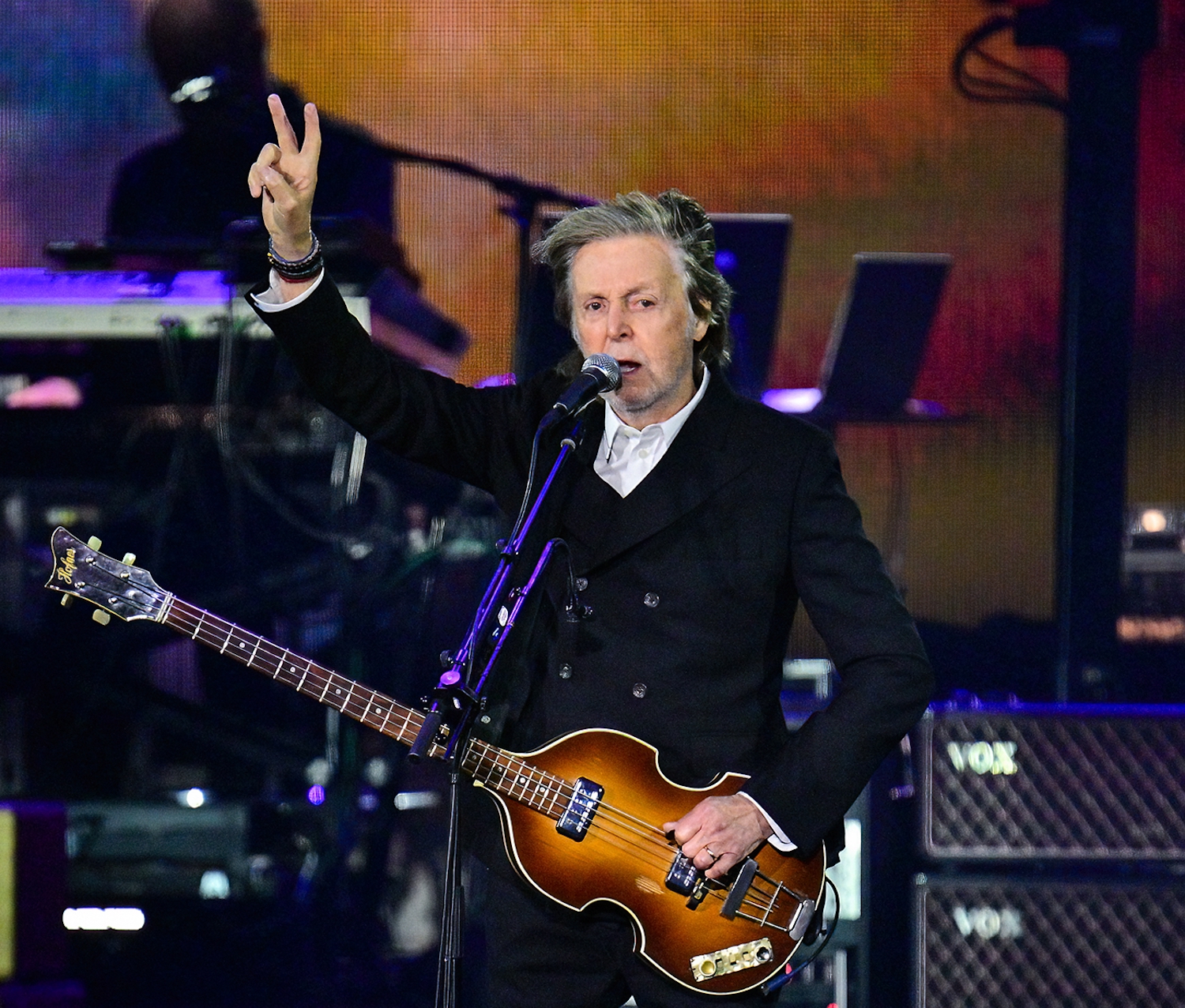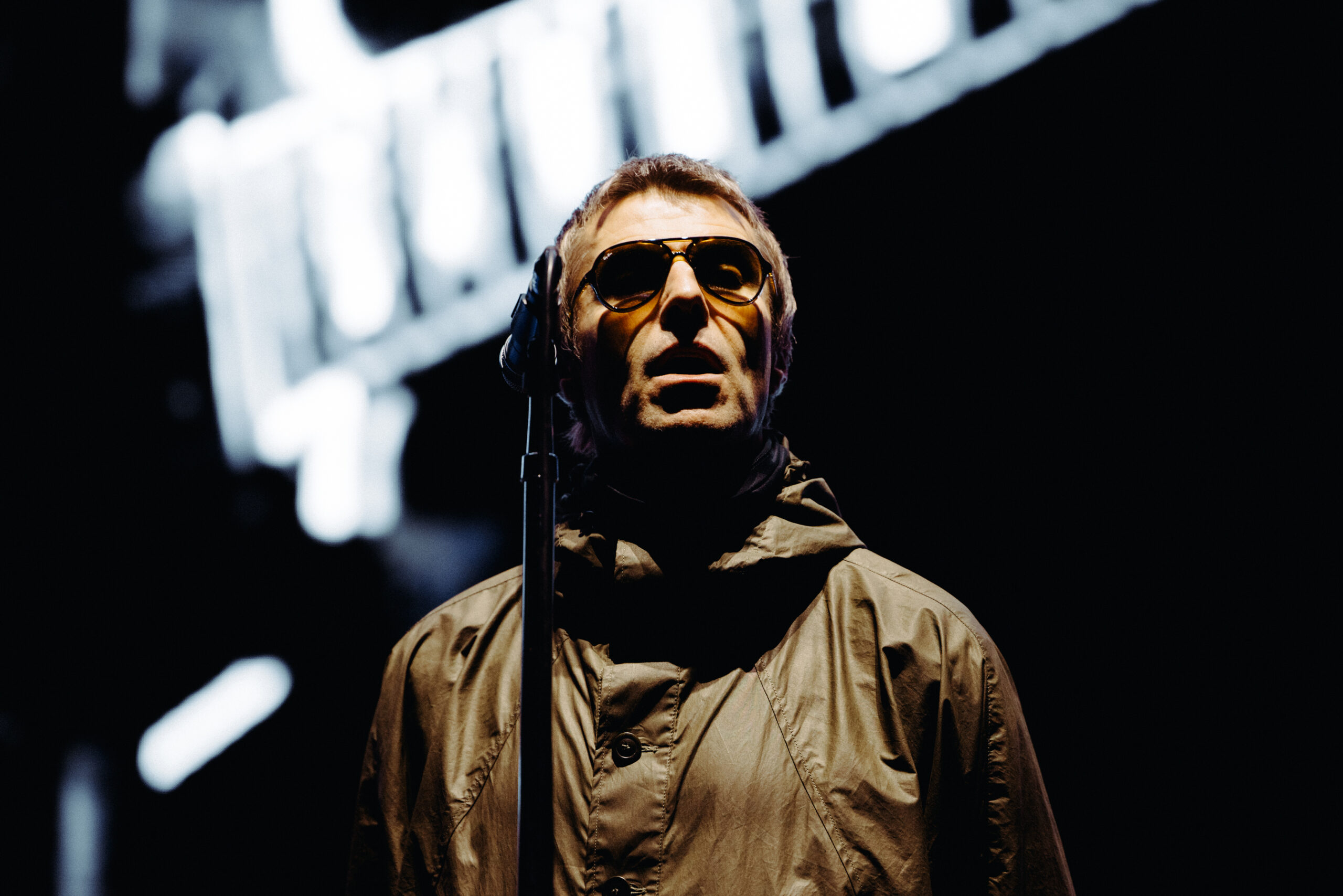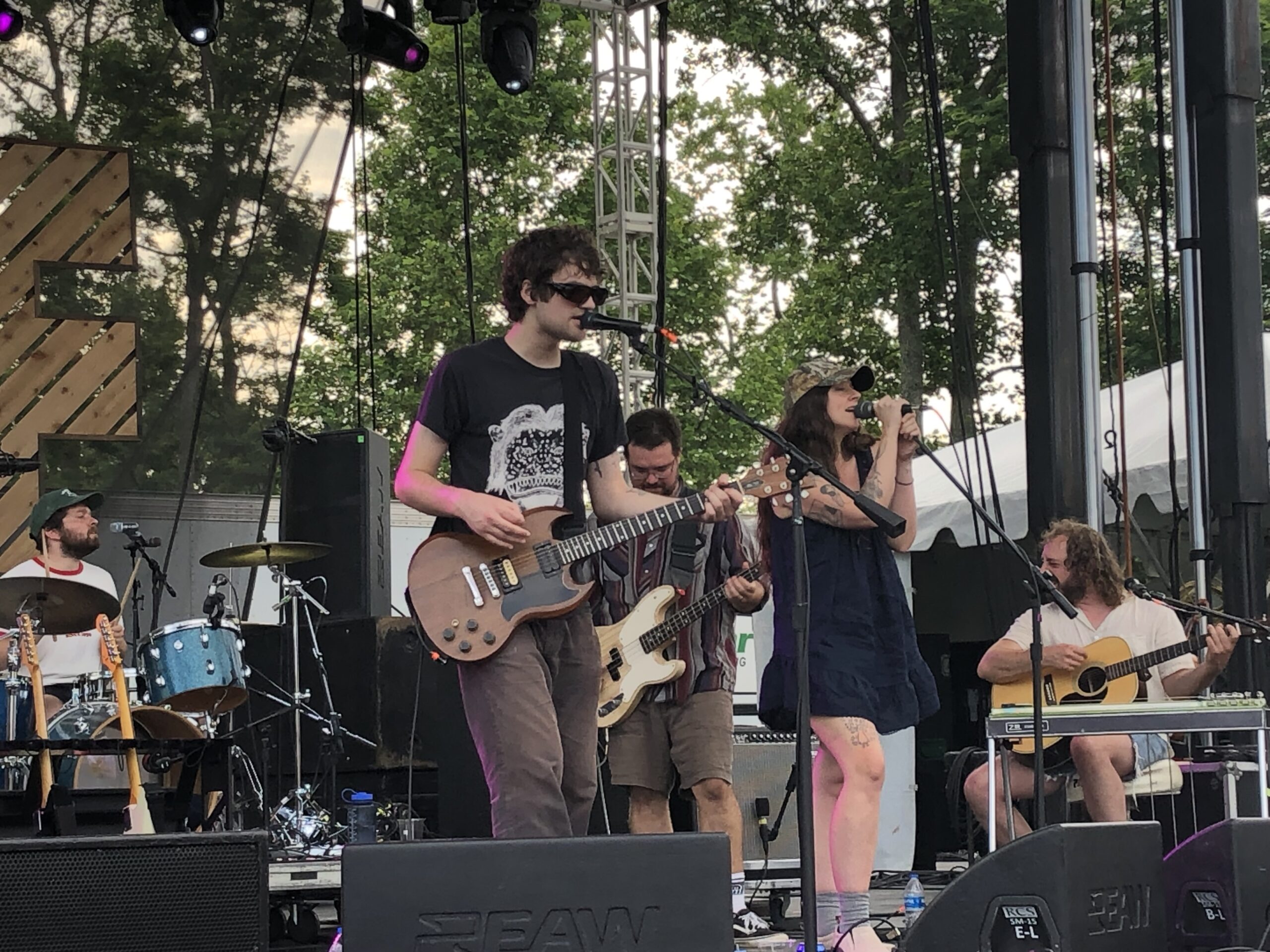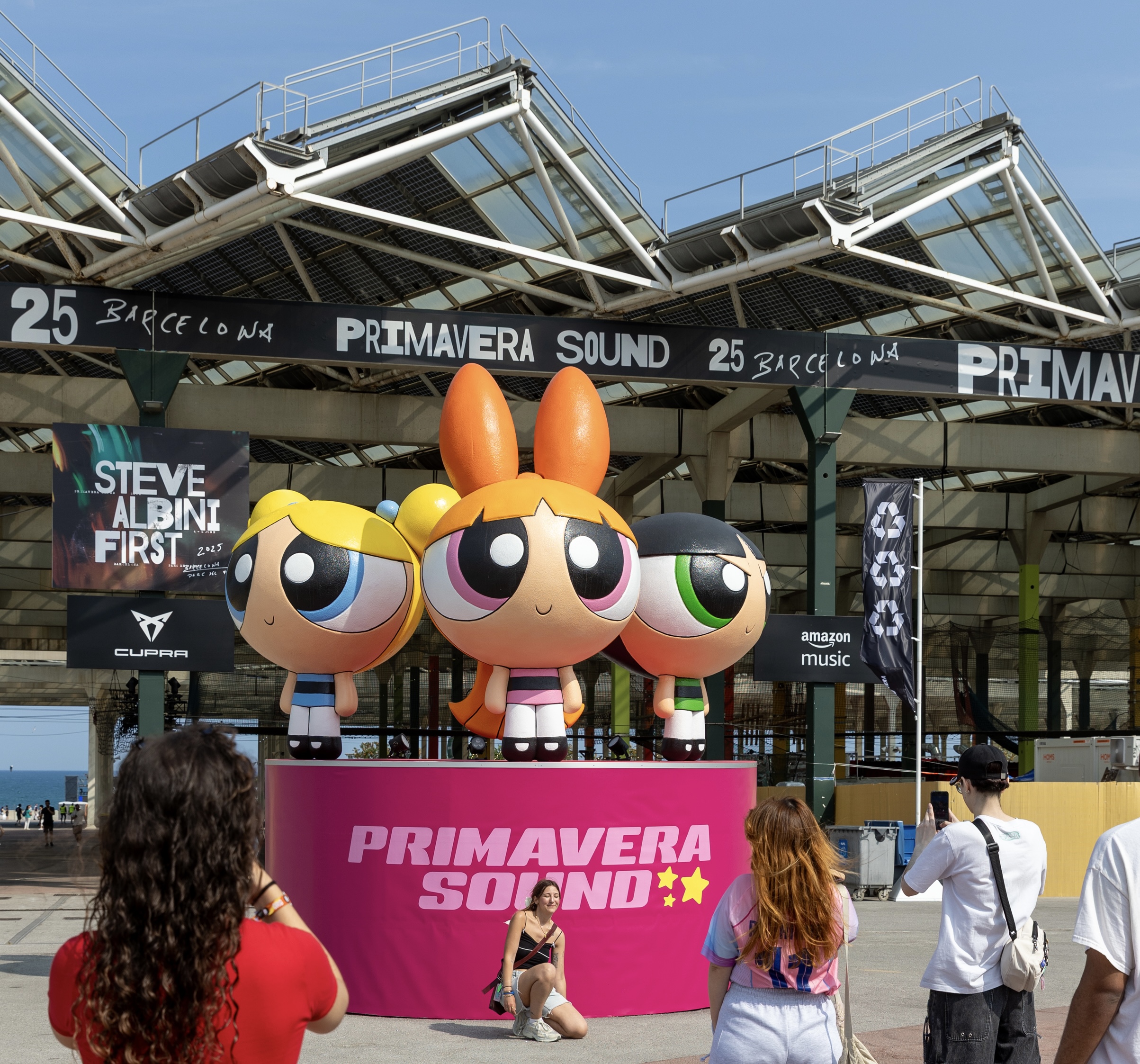1. Pavement should not open for the National. This was my steadfast conviction going into Saturday night. The first time the National held their Homecoming festival on the Cincinnati riverfront five years ago, I fully embraced my identity as a National Dad. I loved it. I love them. But still. Pavement are deities. The thought of them opening for anybody feels weird and wrong, and the thought of them opening for a band as earnest as the National felt even more bizarre.
2. This feeling was compounded by the belated realization that Saturday night's gig was possibly the last Pavement show ever. Their first reunion tour took place in 2010, about a decade after their breakup. The second one — the one that wrapped up Saturday night in Cincy — was supposed to launch in 2020 before the pandemic pushed back the start to 2022. Maybe they'll do another one circa 2033, but maybe not. Maybe some of them will be dead by then. Maybe they'll all be in good health but Stephen Malkmus will say "nah." The band certainly implied Saturday that they do not foresee more gigs on the horizon. "Welcome to the last Pavement show for a long time!" Scott Kannberg announced after the first song, while Malkmus described the night's setlist as "the last one ever."
3. After watching both bands do their thing Saturday night, the thought of the National opening for Pavement feels just as perverse. What, Malkmus and the boys are going to saunter onstage and wobble-glide through "Gold Soundz" after two hours of somber confessional epics like "Terrible Love" and "Space Invader"? Both of these bands mean so much to so many of the same people, me included. Both are ostensibly part of the same genre. Both are loopy in their own way. But their respective flavors are virtually incompatible. This was indie rock Barbenheimer.
4. I was supposed to be at Homecoming all weekend, but life got in the way. More accurately, death got in the way. A funeral prevented me from arriving at the fest until Saturday evening, about 20 minutes before Pavement's set, which meant Pavement and the National were the only two acts I saw. No Patti Smith. No Walkmen reunion (goddammit). No Bartees Strange, no Snail Mail, no Weyes Blood, no Arooj Aftab, no Julia Jacklin. Etcetera, etcetera. It's a bummer, but at least I can look at the beautiful pictures Emilio Herce shot for Stereogum all weekend (see below).
5. The first Homecoming in 2018 was held at Smale Park directly alongside the Ohio River. The 2023 version of the fest was at the ICON Festival Stage at Smale Park, a newish outdoor venue a few steps uphill from the former festival site, nestled directly beside the Bengals' football stadium. At ICON, the city skyline loomed larger, and the show felt smaller. Maybe it's because I showed up so late, but with only one stage and a relatively intimate setup, the vibe was more like a concert than a festival — though only at a festival will you usually have as much tonal dissonance between two acts as there was between Pavement's above-it-all coastal cool and the National's austere Midwestern soul-baring.

6. Did Pavement begin with "Grounded" because they found it humbling to open for the National? Did they do it because "Grounded" is the Pavement song that comes closest to the National's self-consciously cinematic vibe? They probably just opened with it because it's a fantastic opener, building from one brilliantly simple guitar riff (the high-pitched not-quite-unison guitar drone that opens the song) to another (the string-bend-into-power-chord theatrics of the chorus). Whatever the reason for it, it made for a hell of an introduction. Boys were living on these streets.
7. I caught the 2010 Pavement reunion twice, but I don't remember the band ever rocking as hard as they rocked Saturday. It wasn't just the proggy, proto-Jicks buildup of "The Hexx." It was the explosive chorus and inspired slipshod soloing on "Stereo," the heavy instrumental break on "Transport Is Arranged," even the countrified riff that brought some sizzle to the end of "Father To A Sister Of Thought." (Malkmus: "We were taking that down Covington way!") Pavement never shed the ramshackle grace that has defined them since the beginning, that feeling that every song is a basket rattling around the rim before sinking through the net. But as heard on this tour, they were a force — as locked-in as they could be without losing their sense of self.
8. No band can sound that polished with an indie-rock hypeman like Bob Nastanovich roaming the stage screaming his guts out. I would've liked for them to let him loose on "Conduit For Sale!" one more time, but hearing him go nuts on "Unfair" was almost as satisfying.
9. Beyond his guitar work, Malkmus gave a virtuoso-level banter performance Saturday, from an attempted Meghan Trainor parody ("I’m all about the ride, no hi-hat") to a tongue-in-cheek monologue about catching MRSA in moshpits that morphed into some actually sentimental reflections about returning to normal life after tour: "I know I got teeth to fill. Bills to pay. This is basically the last 15 minutes of unreality. It fuckin' sucks."
10. Pavement's setlist was about as good as you could have wanted from a 90-minute festival slot. They busted out "Loretta's Scars" after dusting it off this week for the first time in 13 years, slotted in some fun deep cuts like "Starlings Of The Slipstream" and "Zurich Is Stained," and made time near the end for the weirdo Spotify success story "Harness Your Hopes." The latter didn't seem necessary at a festival where much of the crowd was either paying for a babysitter or college tuition, but whatever. I can think of at least a dozen songs I'd have wanted to hear instead — early classics "Frontwards" and "Shoot The Singer," but also late classic "Carrot Rope," which always struck me as a beautiful finale for this band. Still, most of the biggest "hits" were accounted for: "Grounded," "Stereo," "Summer Babe," "Gold Soundz," "Silence Kid," "AT&T," "Spit On A Stranger," "Shady Lane," an ending one-two punch of "Cut Your Hair" and "Range Life."
11. When "Cut Your Hair" kicked in, its falsetto gibberish hook commingling with rich, resonant guitar chords, the finality of the moment hit me. Bands start up each and every day, but most of them don't build a legacy like this one. Pavement were one of my gateway bands into indie rock. I got to them just after they broke up the first time, and I did it the old-fashioned way: by downloading "Cut Your Hair" from Napster. They quickly became central to my music taste and, by extension, my identity. In college, I repurposed "Silence Kid" as an AIM screen name and ripped off Malkmus' songwriting in my going-nowhere indie band. They remain a foundational fixture of a genre that has given me some of my most beloved music. So hearing them do that song in the last 10 minutes of their last show — it was a special moment from a special old band.

The 2010 Pavement reunion (in America) ended with Sonic Youth playing right before Pavement at a Matador label festival. The 2022-23 Pavement reunion ends with Pavement playing before the National at a National festival. Decent snapshot of “indie rock” shifts in 13 years
— David Malitz (@malitzd) September 16, 2023
12. Again, it's strange that anyone came out and played for two and a half hours after Pavement walked off the stage for what might be the last time ever — especially a band whose disposition clashes with Pavement's so emphatically. But this was the National's festival, and the National came to throw down. Their set was fiery and accomplished, a reminder that their catalog runs just as deep and their influence just as wide. The sheer professionalism of it spoke volumes about how indie rock developed in the decades after Pavement's breakup, a trajectory that mirrored the post-Sopranos evolution of prestige TV — blockbuster entertainment for people with liberal arts degrees.
13. Berninger's sloppy-drunk antics at the first Homecoming were highly entertaining, but his performance benefitted from being less obviously inebriated this time. “I think my ibuprofen just kicked in," he remarked two songs into Saturday's set. "Oh yeah."
14. In 2018, the National built one night of Homecoming around a full-length performance of their breakthrough album, Boxer. The aborted 2020 edition of Homecoming was to feature the band playing all of High Violet, a plan they finally brought to fruition Friday. (Would've liked to have seen it!) This year they did full-album performances both nights, with Saturday devoted to Trouble Will Find Me. When the album dropped 10 years ago, I thought of it as the band plateauing. In the years since, it has evolved into a perennial favorite, the one I return to more than any other National release. There are several albums that could be considered their best work — often it's just whichever elite National album I'm listening to in that moment — and Trouble fully belongs in that conversation with Alligator and Boxer and High Violet.
15. Saturday night was a reminder of just how many stunners are tucked away into that tracklist. The opening run of "I Should Live In Salt" into "Demons" into "Don't Swallow The Cap" was remarkable — two slow-burn anthems followed by one of the most brisk, propulsive tracks they've ever done. "Sea Of Love" was an inferno, "Graceless" an elegant drag race (in the automobile sense, not the RuPaul sense). The slow jams were hitting too: the smoldering "Fireproof," the glimmering "Heavenfaced." Even "I Need My Girl," the most annoyingly basic song in the National's discography, was brimming with pathos on this night.
16. One fine quality of Trouble Will Find Me is that it ends with three straight songs that could feasibly work as the grand finale. "Humilitation," a song I always forget about, was grand and expansive even before it morphed into Sad Songs For Dirty Lovers oldie "Murder Me Rachael" by surprise. "Pink Rabbits," a song that belongs on any National best-of collection, ambled drunkenly along into blurry reverie, gorgeous as ever. Actual closer "Hard To Find" flickered to life, bloomed into beauty, and then dissipated back into the ether. Aaron Dessner told us the band calls that one "Hard To Play," but they made it look easy.
17. The National's more recent material has not scaled quite the same heights, in part because Berninger's distinctive lyrical style has sometimes toppled over into self-parody, relying too much on quirky imagery and stream-of-consciousness anecdotes. But circa Trouble Will Find Me he was at the peak of his powers, writing smart turns of phrase that tapped into some real-deal sad-dad existential-crisis feelings. "I am secretly in love with/ Everyone who I grew up with" always stood out to me, as did "You didn't see me I was falling apart/ I was a television version of a person with a broken heart."
18. I'm jealous of Aaron Dessner's Television T-shirt.

19. Berninger's physical presence is such a huge part of the National live experience — this tall, slender dude in a suit stalking the stage, bouncing and grooving and gesticulating in a rhythm all his own. Sometimes he arches his microphone skyward in moments of passionate release; other times he stretches his arms to their full wingspan and stares out wide-eyed at the crowd, marveling at what he and his bandmates are conjuring. Even on the ballads his shoulders lock into a jagged sway. The widest gulf between the National and Pavement is the difference between Berninger and Malkmus, the poster boy for lackadaisical stage presence. Berninger has a lot more in common with Nastanovich; both of them charged into the audience at one point, whereas Malkmus pointed out that he'd never done such a thing.
20. The band acknowledged that the Newport Aquarium, referenced in "New Order T-Shirt," was just across the river. But that was hardly the best local landmark invoked from the ICON stage. On Friday, the National received a key to the city. "All night I was trying it on all the Graeter's and it didn’t work,” Berninger joked, referring to the city's god-tier ice cream chain. A man of discerning taste! All the black raspberry chip is all for him!
21. This point has been beaten to death by now, but I can't get over how much better the National sound when they let drummer Bryan Devendorf cook. Some of the less dynamic tracks from this year's First Two Pages Of Frankenstein were jolted to life onstage, "Tropic Morning News" especially — and the ones that already smacked on record, like "Eucalyptus" and "Grease In Your Hair," were transcendent in person. Brass parts from the group's longtime utility players also contributed to the full, commanding sound the National brought to the stage, plus the noises Bryce Dessner was wringing from his guitar were immaculate. Even the slow, dreary numbers take on the intended splendor in the concert setting (a devastating "Light Years" closed the main set), and the loud ones were really loud (their performance of "Terrible Love" in the encore was downright violent). For all the fussiness that can sometimes drag down their albums, it's nice to be reminded what a ferociously powerful live band they can be.
22. The National announced Friday that they're releasing their second album of 2023, Laugh Track, tonight at midnight. The centerpiece of that album, "Space Invader," is my favorite new National song in a decade, an instant classic that proves my concerns about this band being washed were premature. After "Space Invader" popped up on Friday's setlist, I was afraid they wouldn't play it Saturday. Fortunately, this was not the case. "Space Invader" is a powerful song, one that glows, surges, and disappears into silence only to charge back with a three-minute post-rock finale that feels like "Fake Empire" blown out to galactic proportions. The National recognize how powerful the song is — so much so that they played it to close out Homecoming 2023. When the band launched into that final stretch, it was like the grand finale at a fireworks display. Berninger grumbled some baritone growls beneath the noise, then took a seat at the side of the stage and beheld the glory along with the rest of us. In that moment, any concerns about who deserved to open for who melted away.
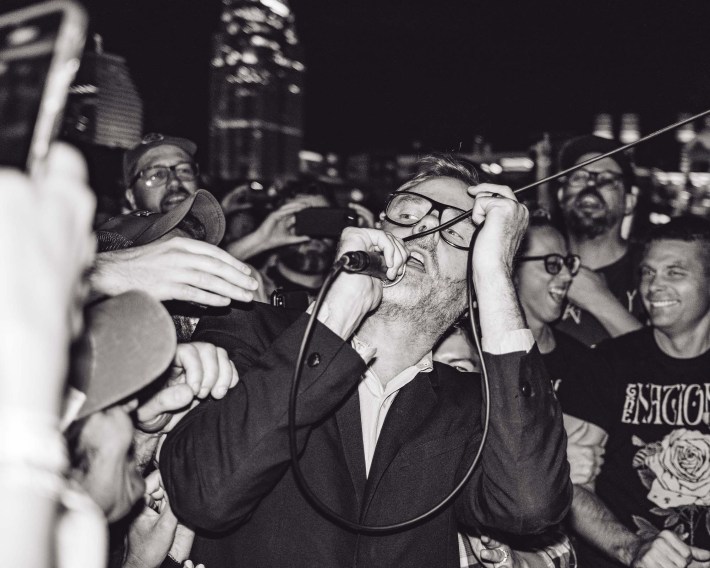
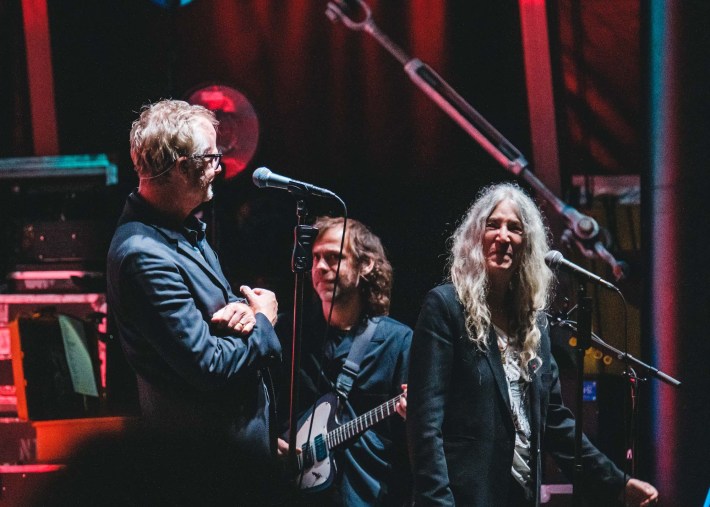
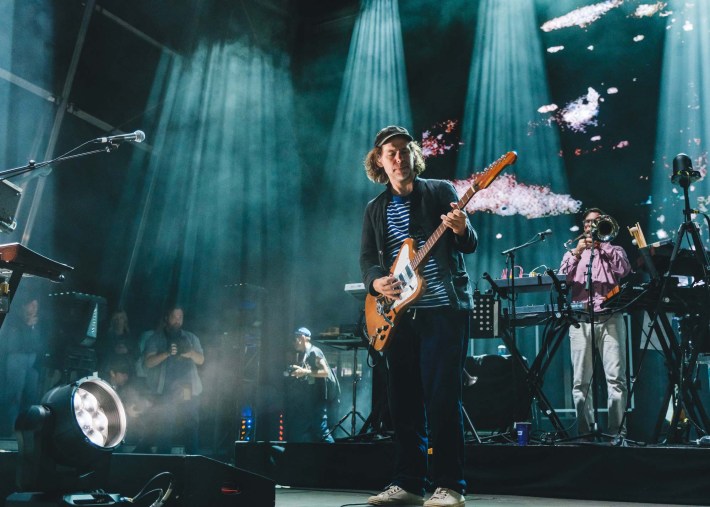
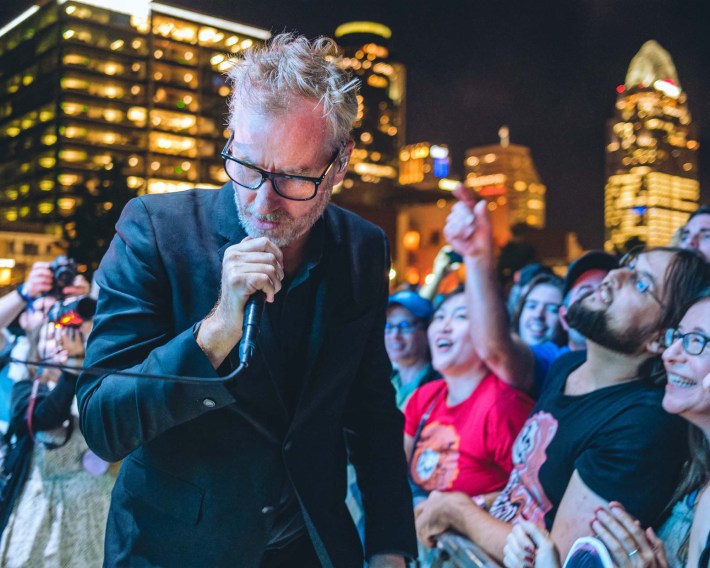
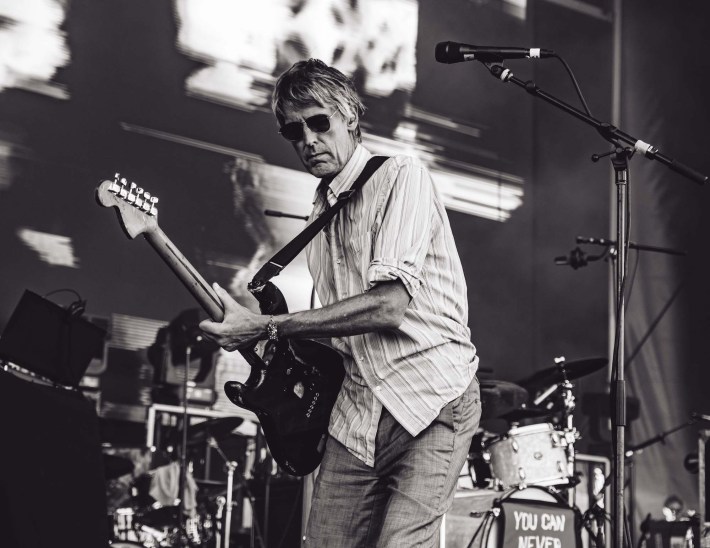
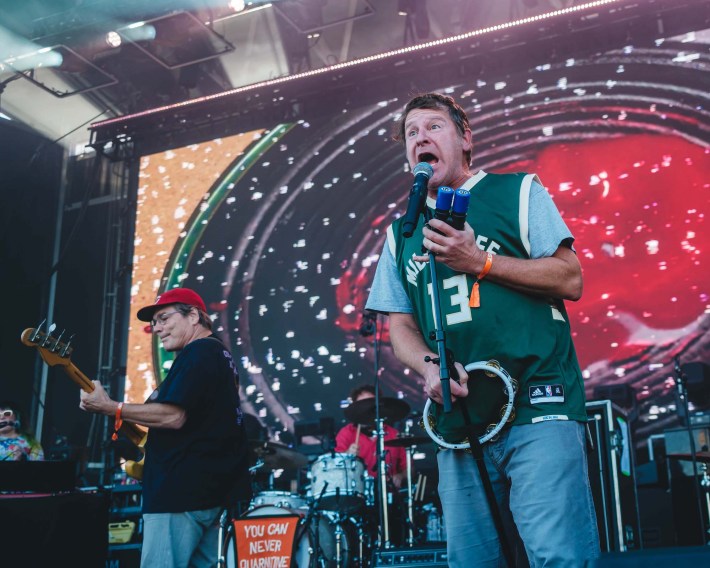
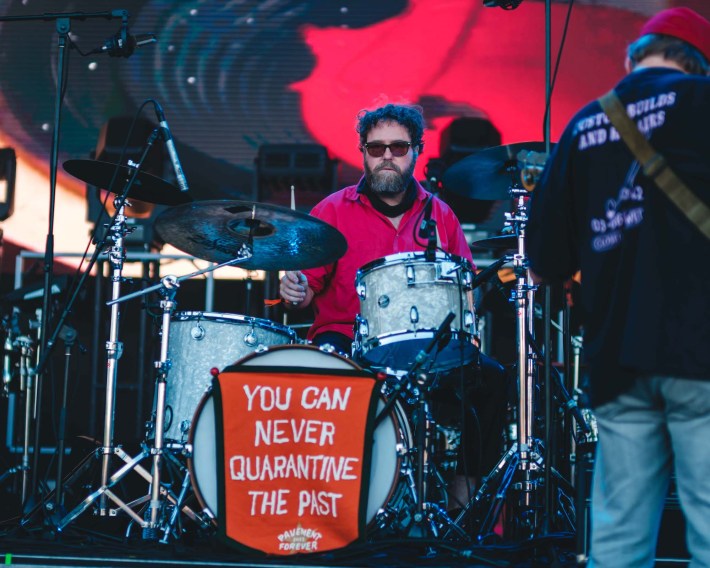
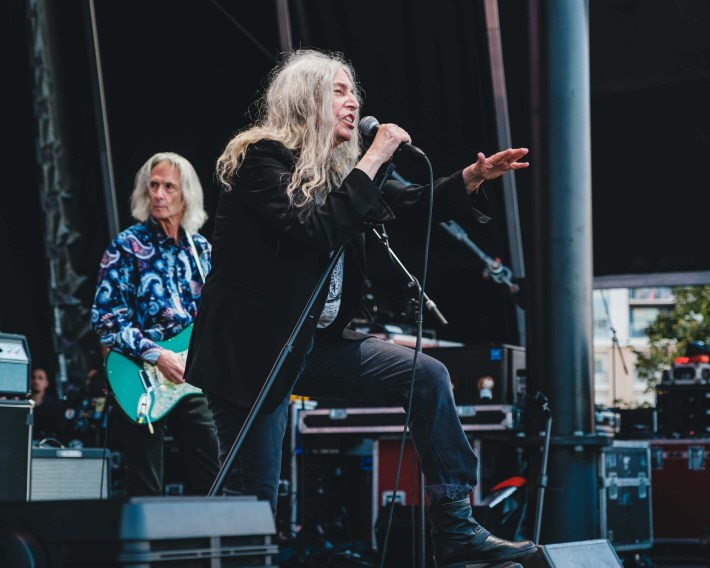
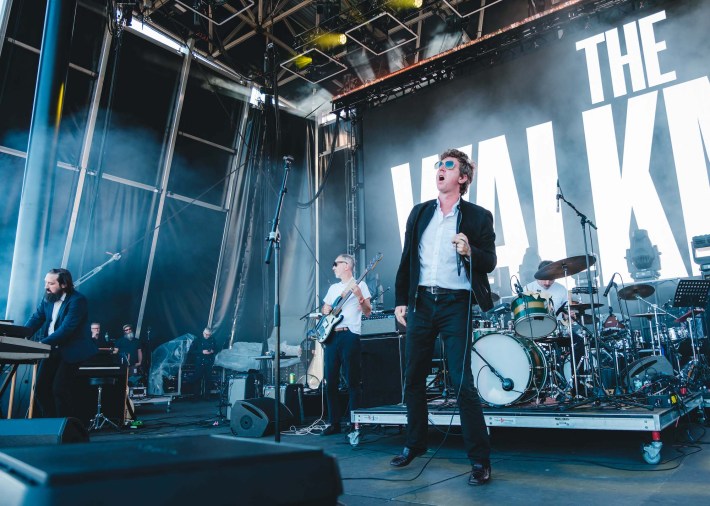
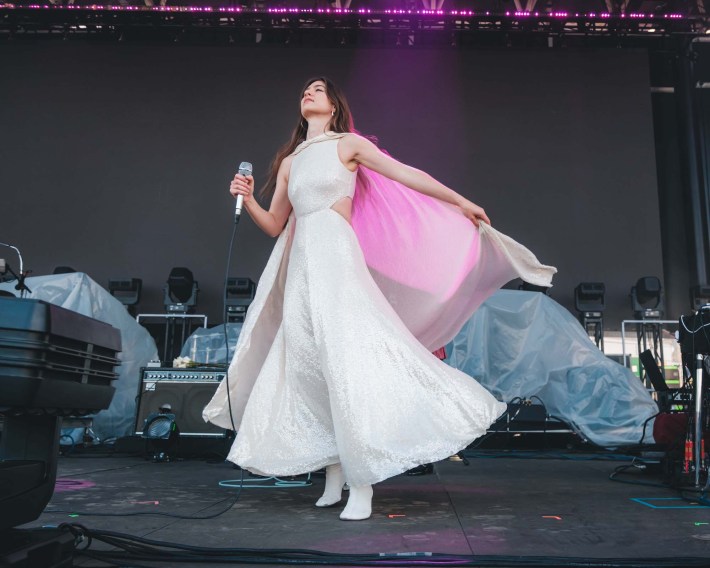
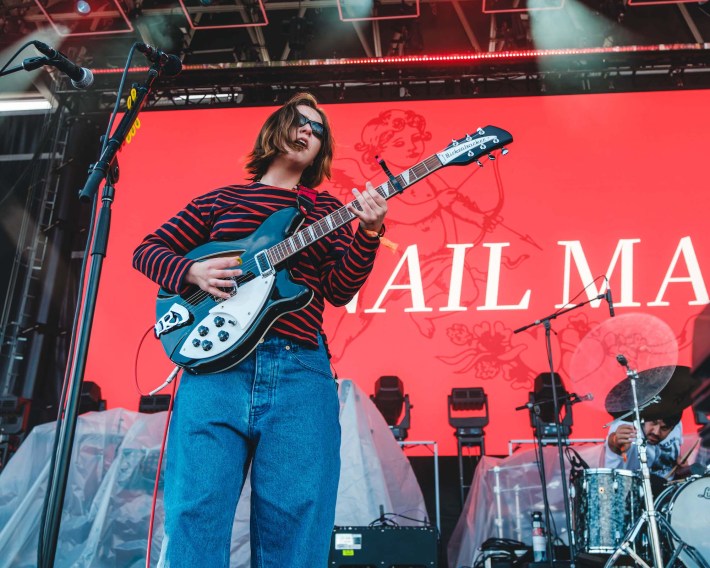
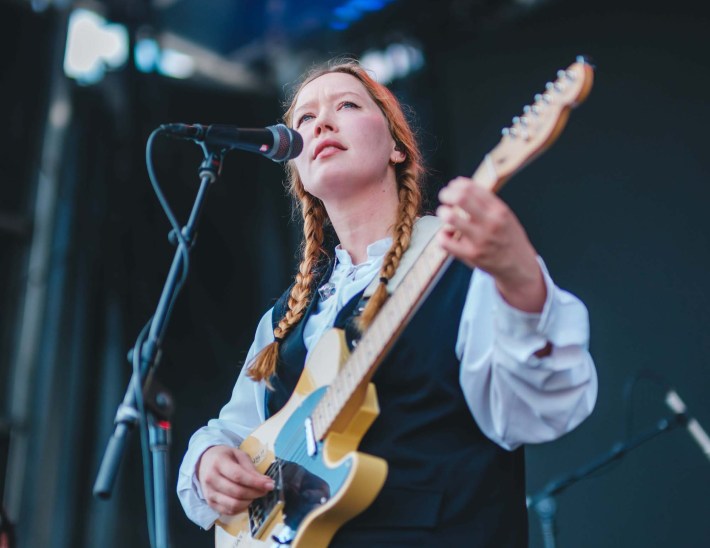
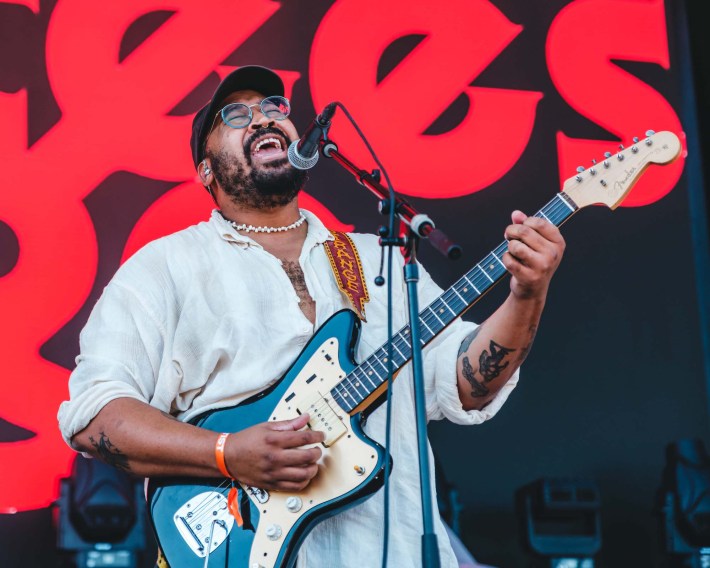
We rely on reader subscriptions to deliver articles like the one you're reading. Become a member and help support independent media!
